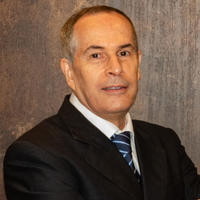Between May 20th and 21st, 2024, the directors of the main development banks will meet in Rio de Janeiro to discuss the prospects for green financing on the margins of the G20 and a year away from COP30. CEBRI, for its part, has developed studies with the BID, EPE and COPPE on the possible routes for the energy transition in Brazil. The economic model and the cost of these alternatives have been key issues in these reflections, to ensure a just transition that creates opportunities for local communities in the regions and provides energy security and low-cost energy for consumers.
In 2024, the BNDES and CEBRI have teamed up with the IDB, EPE and universities to detail the 2025-2040 roadmaps for decarbonization in different sectors - electric, fossil, bios and hydrogen, among others - based on the Brazilian NDC, and macroeconomic impacts of this transition in different regions. The availability of capital to finance decarbonization is among the key issues, along with the regulatory environment and the cost of technologies, to be addressed if Brazil is to achieve its carbon neutrality goals by 2050, in line with its commitments under The Paris Agreement.
As a result, the event “Brazil 2050: Routes to Decarbonize the Economy” will bring together the main players working on the issue of financing the energy transition, to debate current policies and the role of key financiers such as the Development Banks, as well as the opportunities and requirements for leveraging investment in the different sectors.
Check out the full program:
Opening and Panel 1 | Roads to accelerate the transition
9am to 10am
Aloizio Mercadante, President of the BNDES
Jorge Viana, President of ApexBrasil
Morgan Doyle, Representative of the BID Brazil Group
Clarissa Lins, Trustee at CEBRI and Founding Partner at Catavento Consultoria
TBC - Alexandre Silveira, Minister at the Ministry of Mines and Energy
Panel 2 | Brazilian policies for transition
10am to 11am
Rafaela Guedes, Senior Fellow at CEBRI
Luciana Costa, Director of Infrastructure, Energy Transition and Climate Change at the BNDES
Ana Toni, National Secretary for Climate Change of the Ministry of the Environment and Climate Change
TBC - Cristina Fróes de Borja Reis, Undersecretary for Sustainable Economic Development at the Ministry of Finance
TBC - Rodrigo Sobral Rollemberg, Secretary of Green Economy, Decarbonization and Bioindustry of the Ministry of Development, Industry, Trade and Services
TBC - Thiago Barral, Secretary of the National Secretariat for Energy Transition and Planning of the Ministry of Mines and Energy
Panel 3 | Preliminary results of the Energy Transition Program: Sectoral options for the transition and next steps
11am to 11:30am
Décio Oddone, Coordinator of CEBRI's Energy Program and CEO of Enauta
André Lucena, Professor at the Alberto Luiz Coimbra Institute for Graduate Studies and Engineering Research at UFRJ
Thiago Ivanoski, Director of Economic, Energy and Environmental Studies at EPE
Panel 4 | Sector Dialogues on options and challenges on the decarbonization path
11:30 to 1pm
Claudia Prates, Head of Climate Transition at the BNDES
Luiz de Mendonça, CEO of Acelen
Pedro Parente, Founding Partner of EB Capital
Gabriela Oliveira, Director of Renewable Energy at Atlas Agro
Gil Maranhão Neto, Director of Communication and Corporate Social Responsibility at ENGIE Brasil
TBC - Maurício Tolmasquim, Director of Energy Transition and Sustainability at Petrobras
Between May 20th and 21st, 2024, the directors of the main development banks will meet in Rio de Janeiro to discuss the prospects for green financing on the margins of the G20 and a year away from COP30. CEBRI, for its part, has developed studies with the BID, EPE and COPPE on the possible routes for the energy transition in Brazil. The economic model and the cost of these alternatives have been key issues in these reflections, to ensure a just transition that creates opportunities for local communities in the regions and provides energy security and low-cost energy for consumers.
In 2024, the BNDES and CEBRI have teamed up with the IDB, EPE and universities to detail the 2025-2040 roadmaps for decarbonization in different sectors - electric, fossil, bios and hydrogen, among others - based on the Brazilian NDC, and macroeconomic impacts of this transition in different regions. The availability of capital to finance decarbonization is among the key issues, along with the regulatory environment and the cost of technologies, to be addressed if Brazil is to achieve its carbon neutrality goals by 2050, in line with its commitments under The Paris Agreement.
As a result, the event “Brazil 2050: Routes to Decarbonize the Economy” will bring together the main players working on the issue of financing the energy transition, to debate current policies and the role of key financiers such as the Development Banks, as well as the opportunities and requirements for leveraging investment in the different sectors.
Check out the full program:
Opening and Panel 1 | Roads to accelerate the transition
9am to 10am
Aloizio Mercadante, President of the BNDES
Jorge Viana, President of ApexBrasil
Morgan Doyle, Representative of the BID Brazil Group
Clarissa Lins, Trustee at CEBRI and Founding Partner at Catavento Consultoria
TBC - Alexandre Silveira, Minister at the Ministry of Mines and Energy
Panel 2 | Brazilian policies for transition
10am to 11am
Rafaela Guedes, Senior Fellow at CEBRI
Luciana Costa, Director of Infrastructure, Energy Transition and Climate Change at the BNDES
Ana Toni, National Secretary for Climate Change of the Ministry of the Environment and Climate Change
TBC - Cristina Fróes de Borja Reis, Undersecretary for Sustainable Economic Development at the Ministry of Finance
TBC - Rodrigo Sobral Rollemberg, Secretary of Green Economy, Decarbonization and Bioindustry of the Ministry of Development, Industry, Trade and Services
TBC - Thiago Barral, Secretary of the National Secretariat for Energy Transition and Planning of the Ministry of Mines and Energy
Panel 3 | Preliminary results of the Energy Transition Program: Sectoral options for the transition and next steps
11am to 11:30am
Décio Oddone, Coordinator of CEBRI's Energy Program and CEO of Enauta
André Lucena, Professor at the Alberto Luiz Coimbra Institute for Graduate Studies and Engineering Research at UFRJ
Thiago Ivanoski, Director of Economic, Energy and Environmental Studies at EPE
Panel 4 | Sector Dialogues on options and challenges on the decarbonization path
11:30 to 1pm
Claudia Prates, Head of Climate Transition at the BNDES
Luiz de Mendonça, CEO of Acelen
Pedro Parente, Founding Partner of EB Capital
Gabriela Oliveira, Director of Renewable Energy at Atlas Agro
Gil Maranhão Neto, Director of Communication and Corporate Social Responsibility at ENGIE Brasil
TBC - Maurício Tolmasquim, Director of Energy Transition and Sustainability at Petrobras

_page-0001_(1)664cc2dadc733.jpg)

